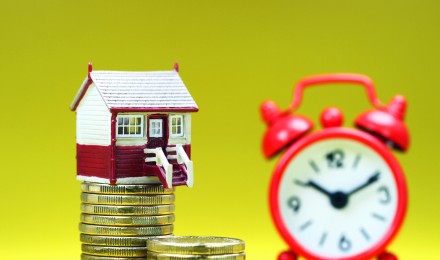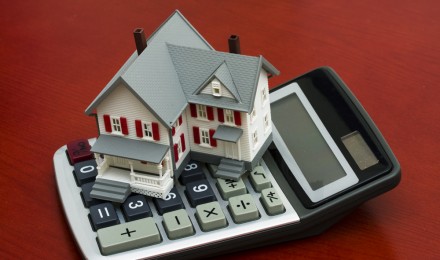When you start to house hunt, it can be a challenge to stay within your budget. You may see a home that is just outside of your price range and that seems to have all of the features you want. Worse yet, you may have champagne tastes on a beer budget and see a house that is way above what you can comfortably pay and fall in love with it. In any case, whether you stretch a little or stretch a lot, buying a house you cannot comfortably afford is a recipe for disaster.
Why You Should Never Buy at the Top of Your Budget
There is a term for buying at the top of your budget and purchasing the most expensive home that the bank will give you a mortgage for. That term is “house poor.”
Being house poor means that such a large portion of your income goes to pay for your home that there is nothing left to pay for the other things you want or even need. The most extreme and visible example of those who are house poor are people with large or expensive homes who cannot afford to furnish them. When you walk through gigantic rooms that have no furniture in them at all, it becomes readily apparent that the homeowner’s overspent. Don’t let yourself fall into this trap.
Being house poor is a much more serious problem than just not being able to buy your sofa for a while. You may experience months or even years where you spend all you have on your home and you don’t put anything away for retirement, a college fund for your kids, or even for an emergency. This can leave you unprepared for the future and very vulnerable to financial set-backs.
So How Much Should You Borrow?
While banks and mortgage lenders set some limits on your ability to borrow based on your income, these limits may be higher than you personally are comfortable with. Some lenders, for example, allow you to borrow enough that as much as 40-45 percent of your monthly income goes to taxes, insurance and other costs (banks usually won’t let you go above this ratio).
If your bank approves you for this much, think about whether you can achieve all of your other financial plans with only 60 percent of your income coming in. You should actually practice doing this if you can, setting aside the amount that your mortgage will cost over-and-above your current housing costs each month to see how it feels to live without that money. If you can’t do this, at least create a detailed budget that shows what you’ll do with what is left of your cash and make sure that you can fit everything into the budget and make the numbers work.
If you aren’t 100 percent confident that you will be able to do other things besides just scrape together enough for your mortgage payment, then you shouldn’t be borrowing as much as the bank is willing to give. Instead, to avoid overspending on your next house, consider your budget and goals how much you can afford to pay and then work backwards from there to determine how much house you can buy.







